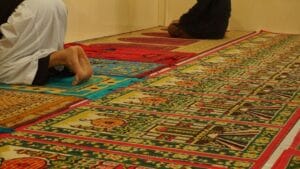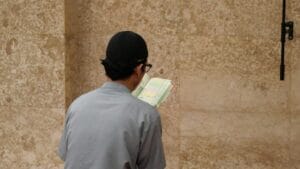Ramadan, the ninth month of the Islamic calendar, is a time for reflection, devotion, and community for Muslims around the world. To make the most of this sacred month, it is essential to prepare both spiritually and physically. Below are ten essential tips for meaningful Ramadan preparation that will help you maximize your experience during this blessed month.
1. Set Clear Intentions
Understanding the Importance of Intentions
In Islam, every action begins with an intention (Niyyah). Setting clear and sincere intentions before Ramadan is crucial as it guides your focus throughout the month. The Prophet Muhammad (peace be upon him) said, “Actions are judged by intentions, and each person will get what they intended” (Bukhari and Muslim). Therefore, it is essential to spend some time reflecting on what you wish to achieve during Ramadan.
Real-World Examples from Practicing Muslims
Muslims often find it beneficial to articulate their intentions writing them down. A recent study highlighted that individuals who write down their goals are more likely to achieve them. For example, one Muslim woman shared her plan in her journal: “I want to deepen my relationship with Allah through prayer, fast with understanding, and engage with my community more.” This clear blueprint helps in maintaining focus during Ramadan’s spiritual activities.
Practical Implementation
Start by dedicating a quiet time for self-reflection. Use a journal to write down your goals. Be specific—instead of just saying, “I want to pray more,” outline how many extra prayers you hope to perform daily or weekly. Review these intentions regularly, particularly during the month itself, to stay motivated.
2. Create a Spiritual Schedule
The Importance of Structure
Ramadan is busy, filled with prayers, community gatherings, and family dinners. Creating a spiritual schedule helps in managing time effectively and honoring your commitments, ensuring you maximize worship and community service. Planning prayer times, Quran recitation, and family meals can immensely improve your focus and productivity during this month.
Examples of Effective Schedules
Different Muslim families find varying ways to organize their days. For instance, a family from Egypt shares their schedule on social media, highlighting that they break their fast first with dates, followed by Maghrib prayers, and then enjoy dinner together. By structuring their activities around prayer, they find a deeper sense of community and shared purpose.
Implementation Tips
Use Digital Calendars: Leverage tools like Google Calendar to set reminders for prayer times and community events. Many Islamic apps offer monthly Ramadan planners.
Involve Family Members: Engage your family in creating this schedule so everyone is on the same page. Planning together makes the experience more cohesive and enjoyable.- Adjust as Needed: Flexibility is crucial. If you find you can’t stick to your original plan, adjust it rather than abandon it altogether.
3. Engage in Quran Recitation
The Role of the Quran
The Quran is central to Muslim life, especially during Ramadan, which Muslims believe is the month when the Quran was revealed. Engaging with the Quran is a significant aspect of Ramadan and one that can enrich your spiritual experience.
Real-World Insights
Many Muslims report that they feel more connected to the Quran during Ramadan. One scholar noted that reading just a few pages daily helps believers ponder the meanings and applications in their lives. Another community member created a group on social media to facilitate shared Quran study, which has fostered discussions that brought deeper insights about verses.
Practical Steps
Set Daily Goals: Aim to read a set number of pages or verses daily. Aim for consistency rather than quantity; even a partial page can lead to profound understanding.
Join a Group: Consider joining or forming a Quran study group. Discussing interpretations and meanings can provide support and enrich your understanding.- Reflect in Writing: Maintain a journal where you summarize verses of importance. Highlight what resonated with you and how you plan to implement those lessons in your daily life.
4. Prioritize Charity (Zakat and Sadaqah)
The Significance of Giving
In Islam, giving to those in need is not just encouraged; it is an essential act of worship during Ramadan. Charity, both mandatory (Zakat) and voluntary (Sadaqah), holds immense merit, especially during this holy month.
Lived Experiences of Charitable Giving
Numerous studies have shown that Muslims often increase their charity during Ramadan. One family shared their practice of donating a set amount each day, sharing how this brought them closer as a family and taught their children the value of helping others.
How to Implement
Set a Daily or Weekly Budget: Break down your charitable goals; for instance, decide on a dollar amount to donate every day.
Research Local Needs: Identify charities or individuals in need in your community. Perhaps you can contribute meals, groceries, or other forms of aid.- Get Family Involved: Encourage your children to participate. Organize activities where they can understand the importance of giving back.
5. Prepare Your Body for Fasting
Understanding the Physical Aspects
Fasting during Ramadan involves abstaining from food, drink, and other physical needs from dawn until sunset. Preparing your body in advance can make the fasting experience smoother and more fulfilling.
Testimonials on Physique Adjustments
Many practicing Muslims share their experiences of adjusting their diet in the weeks leading up to Ramadan. One woman mentioned that she started reducing caffeine intake two weeks prior. This lesser jolt in her routine allowed for a smoother transition when Ramadan arrived, preventing headaches and fatigue.
Preparation Tips
Gradual Adjustment of Diet: Consider modifying your meals by reducing sugar and caffeine intake gradually. This includes eating more whole grains and less processed food to help sustain energy levels during the fast.
Hydration: Increase your water intake in the days leading up to Ramadan to hydrate your body in preparation for the long hours of fasting.- Consult Health Professionals: If you have medical conditions that preventive fasting, consult healthcare professionals on how best to prepare for Ramadan health-wise.
6. Focus on Family and Community
The Importance of Connection
Ramadan is an excellent time to reconnect with family and community. The shared experience of fasting often strengthens bonds, offering support and shared spirituality.
Real-Life Examples of Community Engagement
A successful community-based iftar gathering organized by a mosque can encourage involvement among families. For instance, an iftar-sharing event might include potluck-style dinners, where families bring different dishes. The evident camaraderie enhances community ties.
Practical Engagement Strategies
Plan Iftar Gatherings: Organize community dinners, sharing iftar meals with those less fortunate or with community members. This can be as simple as encouraging families to gather weekly.
Utilize Social Media Wisely: Use platforms to organize events and discussions. These can be opportunities for spiritual growth, inviting speakers, or sharing experiences.- Scheduled Family Time: Incorporate daily or weekly family gatherings, such as discussing daily reflections or sharing what you learned from Quran readings.
7. Improve Your Prayer (Salah)
The Foundation of Worship
Salah (prayers) is a crucial component of daily worship for Muslims. Ramadan offers an opportunity to enhance your prayer life significantly.
Personal Accounts of Revitalized Prayer Experience
Many Muslims relate how they feel a heightened sense of spirituality during Ramadan prayers. One man noted that he began to attend nightly Tarawih prayers with his family, strengthening their bonds and enhancing their spiritual awareness through community worship.
Implementation Strategies
Increase Regularity: Challenge yourself to pray all five prayers in congregation, endeavoring to perform additional Sunnah prayers.
Participate in Tarawih: If your mosque offers night prayers, engage in these special worship sessions, which can deepen your spiritual commitment.- Learn New Supplications: Explore and memorize new supplications (Dua) to incorporate into your prayers. This diversifies your worship and can ignite deeper personal and collective prayers.
8. Establish a Personal Development Plan
The Role of Growth
Ramadan is also a time for personal growth and self-improvement, where Muslims engage in various initiatives for personal and spiritual development.
Insights from Practicing Muslims
To illustrate, a young man discussed his goal of quitting smoking during Ramadan. He shared how the empowerment of fasting became a catalyst for personal change, emphasizing self-control and resilience.
Practical Steps for Personal Improvement
Identify Key Areas for Improvement: Take some time to identify aspects of your character or life you wish to improve.
Create Actionable Steps: Outline specific actions to take. If you desire to learn a new skill, schedule time daily or weekly in your planner.- Find Accountability Partners: Sharing your goal with a friend or family member can offer extra motivation. You can share progress and encourage each other during Ramadan.
9. Tackle Household and Family Responsibilities
Importance of Teamwork
Managing household responsibilities during Ramadan can become overwhelming due to the fasting schedule. Cooperation among family members can facilitate a smoother experience.
Community Voices on Division of Labor
A family in Singapore emphasizes the need for teamwork during Ramadan. They allocate chores among family members, allowing one person to focus on cooking, another on cleaning, and so forth.
Implementation Techniques
Divide Responsibilities: Create a family chore chart where everyone knows their role, easing the burden on one person.
Plan Weekly Meals Together: Organizing meal prep can lessen daily cooking time. Consider cooking large batches of food for iftar and suhoor to free up time during Ramadan.- Involve Children: Getting younger family members involved in planning can teach them valuable life skills while fostering a communal Ramadan spirit.
10. Reflect and Document Your Experience
The Significance of Reflection
At the end of Ramadan, reflecting on your experiences can reinforce the lessons learned and foster gratitude for the time spent in prayer and community.
Personal Accounts of Reflection
Many Muslims keep journals during Ramadan chronicling their spiritual journeys. One account shared in a community blog described looking back at the month and realizing how much personal growth took place in only 30 days.
How to Implement Reflection
Daily Journaling: Encourage yourself to journal daily or weekly, documenting feelings, experiences, prayers, and goals.
Structured Reflection Time: Set aside specific times to pause and reflect. This could be at the end of each week or even more frequently.- Share Insights: Consider sharing your reflections with others. This can deepen connections and possibly inspire others on their spiritual paths.
Frequently Asked Questions About Ramadan Preparation
What is the significance of Ramadan?
Ramadan is deemed the month of the Quran, a time of heightened devotion and spiritual growth for Muslims, marked by fasting, prayer, reflection, and community.
How can I prepare spiritually for Ramadan?
Spiritual preparation can include setting intentions, increasing prayers, engaging in Quran studies, and planning charitable acts.
Is it necessary to fast if I have health issues?
Individuals with health concerns should consult medical professionals and may be exempt from fasting. Islam provides allowances for those who struggle with fasting due to illness.
How can I engage my children during Ramadan?
Encouraging children to take part in household tasks, share prayers, and establish a family schedule can foster a sense of community and dedication from a young age.
How does one maintain the momentum after Ramadan?
It’s essential to set post-Ramadan goals, such as continuing spiritual routines, ongoing acts of charity, and sustaining the bonds formed during Ramadan.
Conclusion
Ramadan is a month filled with opportunities for growth, reflection, and community connection. Preparing adequately will enhance your experience, helping you maximize both the spiritual and physical aspects of this blessed month. By setting clear intentions, planning your schedule, enhancing your worship, and improving family involvement, you can create a Ramadan that is not only meaningful but transformative. The steps outlined—from increased prayer and engagement in the Quran to acts of charity and personal development—offer a multidimensional approach to meaningful observance. By applying these ten essential tips, you will not only enrich your own Ramadan experience but also contribute thoughtfully to the collective spirit of community, compassion, and worship, forging connections that can last well beyond the month itself.














Post Comment